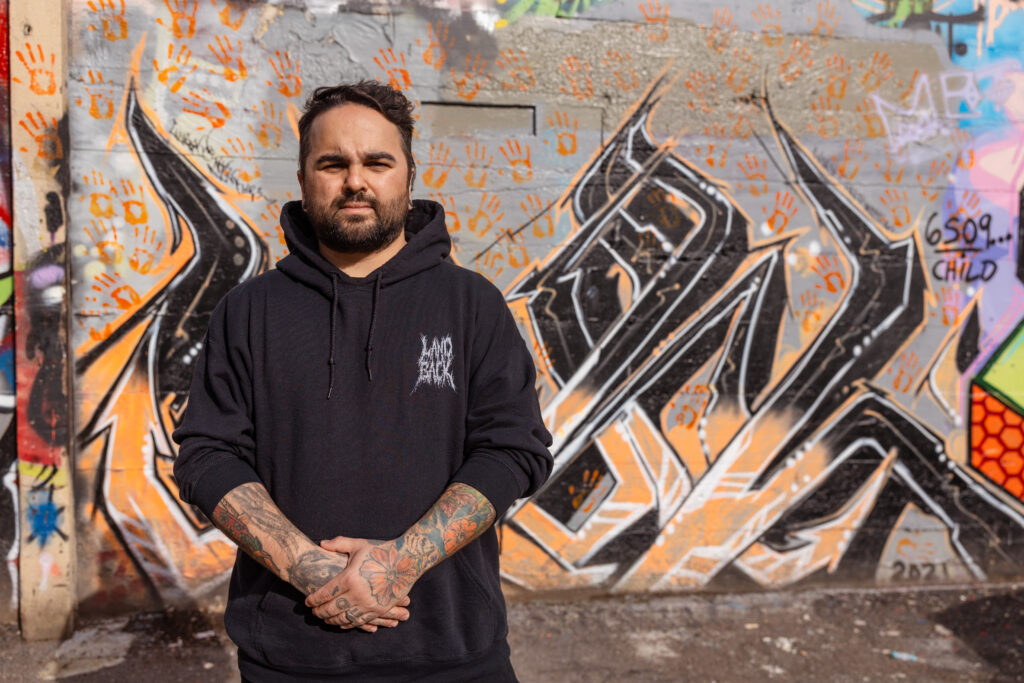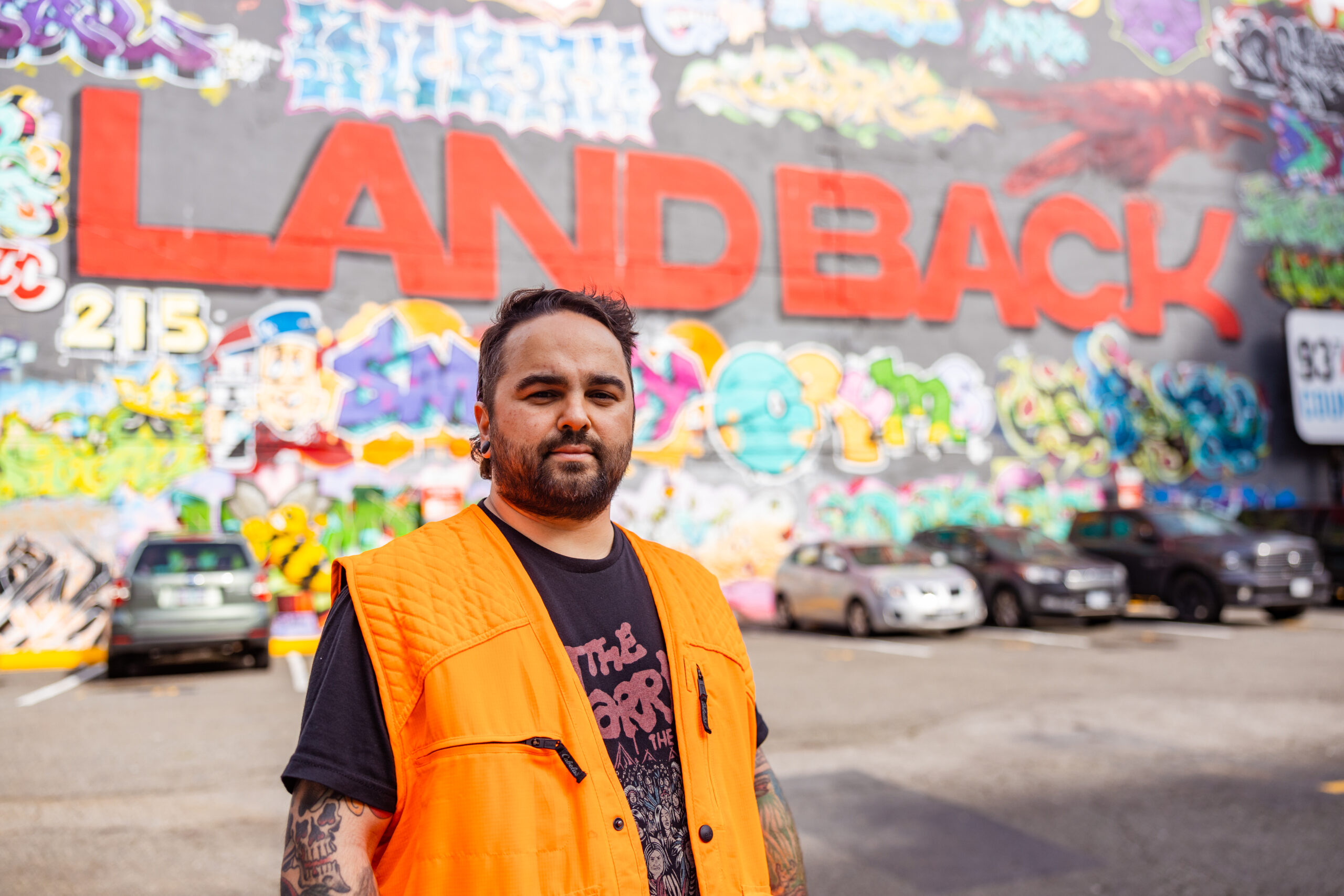Hussein aka Handsome Tiger is an Anishinaabe Métis and North African, producer and DJ who is Indigenizing bass music through traditional Indigenous soundscapes.
The infinitely daring auditory landscapes of electronic music are incredibly captivating. There are lulls and trends that the mainstream picks up and repackages but at its core, it’s about exploration, so it’s always exciting when I discover an artist who introduces the world to an entirely new experience. Hussein Elnamer, whose stage name is Handsome Tiger, is one such artist.
Hussein is an Anishinaabe Métis and North African, producer and DJ who is Indigenizing bass music through traditional Indigenous soundscapes. His latest, Decolonize EP, dropped in May of 2022. Majiigii, meaning to start, or grow from the root, in Anishinaabemowin, is the perfect name for the first track of this EP.
In what is now known as Canada, during what is referred to as the “sixties scoop” many First Nations, Métis, and Inuit infants and children, including Hussein’s mother, were taken from their families by child welfare authorities and placed for adoption in mostly non-Indigenous households. According to Hussein, Majiigii tells the story of his mother and so many others, who were removed from their communities and traditional culture to assimilate and strip them of their Indigenous identity, but as the track progresses, the drums and voices of their ancestors begin to guide them back home.
“Getting the opportunity to work with these traditional songs and incorporate them into my art, I really realized that the creator’s giving me this opportunity, this gift,” Hussein shared.

The Indigenous vocals in Hussein’s music are from a group called The Chippewa travelers. When the pandemic hit, Hussein couldn’t travel and do shows anymore but Nagamo, an Indigenous publishing company, reached out to him, and through them, he was able to utilize The Chippewa Travelers sample pack.
“I’ve put 20 years of my life into writing music,” Hussein said. “When this opportunity came along I realized that there’s a new route, something new I could do with my art, and it was kind of there all along. This is just a part of my culture.”
Hussein is one of a growing number of Indigenous musicians representing their personal experiences of Indigeneity. “I feel very blessed to have an opportunity to be a part of that and I also know that bares a responsibility,” Hussein said. “I’m very conscious of that.”
Hussien says that his music has also been a reclamation process for reconnecting with his own identity that his mom is really proud of. Within festival culture, Hussein says his Indigenous friends tell him that his music makes them feel seen. “When we’re in these communities in the North American scene where it’s a very white homogenized scene, it’s nice to feel visible and feel that love,” Hussein said.
Hussein pointed to how the commercialization of electronic music impacted the industry resulting in the saturation of predominantly white, male producers and DJs. Representation and visibility are incredibly important to Hussein, which is why all of his DJ sets, celebrate his identity and also nod to the roots of the cultures that created the music, as a way of holding space.
“Dance music was started by Black queer people,” Hussein said. “People need to acknowledge that, especially people who make money in these communities and are silent.”
![]()
Follow Handsome Tiger on Instagram, stream his music, including his latest single with the godfather of powwow step, DJ Shub, on Spotify, and go buy his music on Bandcamp!
You can also catch Handsome Tiger production on the 2nd episode of the Thunder Bay podcast by Ryan MacMahon!











